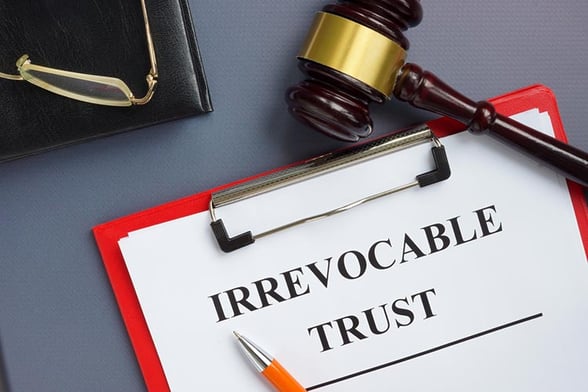
A Delaware Statutory Trust (DST) is an investment vehicle that investors can use to access fractional ownership of commercial real estate assets. DSTs have tax advantages in many situations and are typically eligible for both entry and exit using a 1031 exchange, which sets them apart from many other investment options. DSTs may own various properties, including multi-family housing, office buildings, retail centers, industrial property, medical offices, self-storage, and others.
To participate in a DST, you must be an accredited investor—which means an individual with permission to invest in securities not listed with the Securities and Exchange Commission. Other investments that require accredited status include hedge funds, private equity funds, and some types of crowdfunding, but not publicly traded stocks or bonds. Accredited investor status requires specific income levels or net worth above a certain threshold or holding particular credentials such as Series 7, 65, or 82 licenses. Even then, accredited status is granted by the issuer of the investment, at their discretion. In the case of a DST, the sponsor makes that determination.
A DST is a pre-packaged investment created by the trust sponsor. The name comes from the provisions of Delaware property law that were established in 1988 under the Delaware Statutory Trust Act. That legislation granted limited liability to trustees of special purpose trusts and increased the freedom enjoyed by those trustees concerning management.
Since the DST is a separate entity from the investors in it, assets owned by the investors are non-recourse. In addition, the shares are considered beneficiary interests. Therefore, the IRS regards them as direct property ownership, offering tax advantages to the investors and facilitating the ability to enter and exit through a 1031 exchange strategy.
What Is the Difference Between Revocable and Irrevocable Trusts?
Simply put, a revocable trust can be changed by the grantor (originator) at any time, while the grantor can't modify an irrevocable trust once created. As a result, the assets in a revocable trust still belong to the grantor since they control them, and the grantor remains responsible for the taxes. On the other hand, in an irrevocable trust, the grantor relinquishes their rights to the assets. As a result, the trust files a separate income tax form and pays taxes independently of the grantor.
The grantor sets up the trust and names a trustee to manage the assets (and if the trust is irrevocable, the trustee also oversees the tax filing and payment). The beneficiary receives the benefits, if any, of the trust under the terms set by the grantor.
Is a DST Irrevocable?
DSTs are illiquid but not irrevocable. They may have long hold times and may be difficult to dispose of at value before maturity. The investor does not control the timing of sales (keep in mind that DSTs are passive investments, and the sponsors and trustees make management decisions). However, the typical investment period is between five and ten years. IRS rules prohibit refinancing properties held in a DST, so the assets will typically be sold when a loan matures. The sponsor makes the decisions.
This material is for general information and educational purposes only. Information is based on data gathered from what we believe are reliable sources. It is not guaranteed as to accuracy, does not purport to be complete and is not intended to be used as a primary basis for investment decisions. Realized does not provide tax or legal advice. This material is not a substitute for seeking the advice of a qualified professional for your individual situation. No public market currently exists and one may never exist. DST programs are speculative and suitable only for Accredited Investors who do not anticipate a need for liquidity or can afford to lose their entire investment.
Costs associated with the transaction may impact investor’s returns and may outweigh the tax benefits. All investments have an inherent level of risk. The value of your investment will fluctuate with the value of the underlying investments. You could receive back less than you initially invested and there is no guarantee that you will receive any income.



